Search
Search Results

Quiz
Daily Life & Afterlife in Ancient Egypt
Afterlife Book of the Dead Canopy Class Coffin Texts Domestic Cult Field of Reeds Heka Kites of Nephthys Ma'at Nomarch Pyramid Texts Rite Scribe Senet Shabti Dolls Silo Veneration Vizier

Image
Map of Ancient Egypt from 1742 CE
Celarius, 1742.

Quiz
Gods of Ancient Egypt
Amun-Ra Anubis Bastet Geb Hathor Heka Horus Isis Ma'at Nephthys Nut Osiris Ptah Set Sobek Thoth
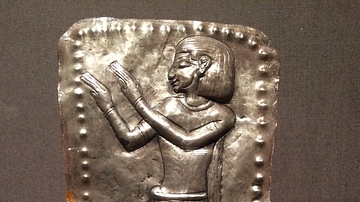
Image
Silver Plaque from Ancient Egypt
This ancient Egyptian plaque dates from the 13th-12th century BCE. It is made of silver and other metals. (Collection of Jude and Michael Steinhardt, New York)

Image
Beer Brewing in Ancient Egypt
Painted wooden model group: four figures preparing food and beer. 6th Dynasty, Sidmant, Egypt.
British Museum, London.
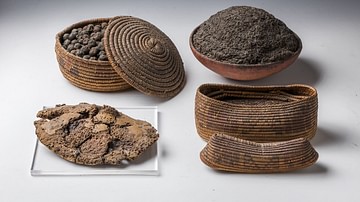
Image
Preserved Baskets of Spices, Ancient Egypt
Baskets of spices and condiments, including tarragon, cumin and lard, from the tomb of Kha, Deir el-Medina, Egypt, c. 1425-1353 BCE.
Museo Egizio, Turin.
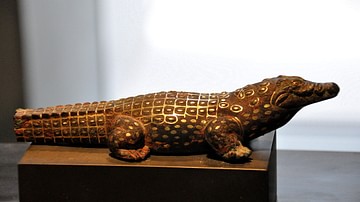
Image
Crocodile Statue from Ancient Egypt
Copper cult statue of a crocodile from Faiyum, Middle Kingdom of Egypt, 12th Dynasty, circa 1800 BCE.
State Museum of Egyptian Art, Munich, Germany.
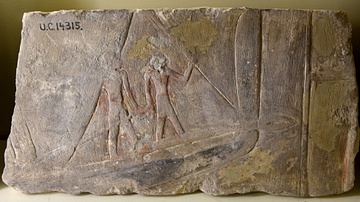
Image
Ship and Sailors from ancient Egypt
This limestone fragment depicts a prow of a ship. There are sailors, facing right; the foremost sailor holds a pole or a spear. The ship was originally painted black while the sailors were painted red. From Egypt, precise provenance is unknown...
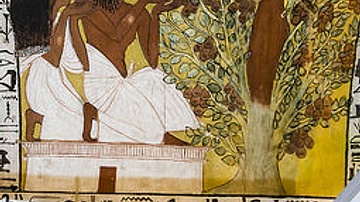
Quiz
Religion in Ancient Egypt
Amun-Ra Clergy Heka High Priest Horus Isis Ma'at Mummification Negative Confessions Osiris Ostraca Set Wab Wedjat Weighing of the Heart of the Soul
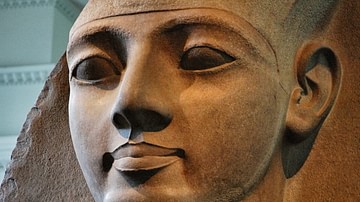
Quiz
Government in Ancient Egypt
Akhenaten Amarna Avaris Dynasty Empire Expedition Heresy Hyksos Kadesh Khafre Khufu Memphis Menkaure Mentuhotep II Nomarch Nome Pharaoh Predecessor Pyramid Ramesses II Reunification Successor Thebes Vizier